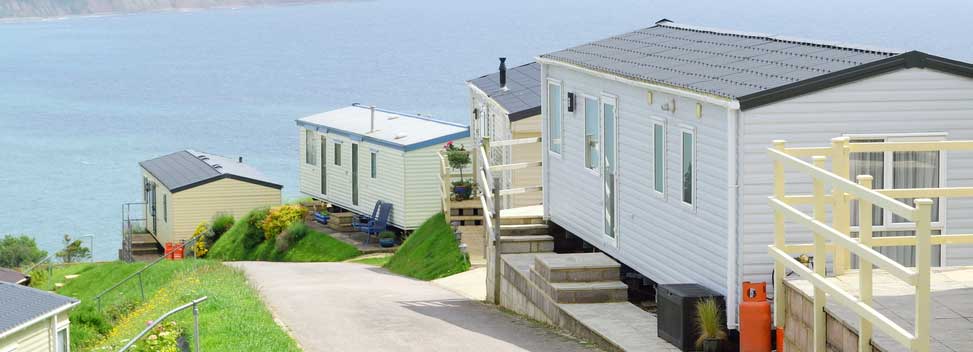Are Static caravans a good investment
Written by Nick Grant
23 Sep 2022
6 min read

A static caravan can provide a great opportunity for regular visits to Britain’s beautiful countryside and coastlines. But, if you’re in the research phase of buying, you’ve probably got a few questions that first need answering, including ‘what costs should I consider beyond my initial investment?’ and ‘is depreciation a concern over the long run?’
We’re here to shed some light on the world of static caravans. We’ll use our extensive sector knowledge to discuss considerations before purchasing, how much you might expect to spend, potential opportunities for generating revenue, and more.
How much do static caravans cost?
Like buying a property or vehicle, the cost of a static caravan can vary considerably depending on size, location, model, and age. Remember, mortgages aren’t available when buying a static caravan. However, financing options are sometimes available. Therefore, you may want to speak to lenders that offer specialist advice and loans for static caravans.Benefits of investing in a static caravan
From spontaneous getaways to extra income, static caravans can have a host of benefits.Cheaper than holiday homes
For many, growing house prices and expensive living costs make owning a holiday home impractical. Renting homes or cottages can also be costly, and you won’t have the comfort of knowing the property is yours. Static caravans offer a cheaper alternative and are typically available at a fraction of house prices, even those abroad.A lifestyle investment
Investing in a static caravan in the UK can offer the flexibility to escape the stresses of everyday life whenever it suits you. Unlike holidays abroad, they can require little-to-no planning, are generally quicker to get to, and you can avoid exasperating airport trips!Cheaper holidays
Save money by taking trips to your static caravan rather than heading abroad. Static caravans are generally fitted with everyday appliances, such as ovens, so you can cook in the comfort of your own home instead of paying for expensive restaurants. Plus, depending on the location, you might not have to pay for accommodation, flights, transfers, and parking fees.Rent out your caravan to make money
Another valuable perk of owning a static caravan is having the freedom to rent it out. If you’re not planning on occupying your static caravan for a large portion of the year, opening it up to paying guests is a great way to generate extra income. Most holiday parks allow sub-letting; however, double-check first.Costs to consider when investing in a static caravan
Did you know many caravan parks charge you to stay at their site? There are a few additional costs to consider, including:Depreciation costs
As a financial investment, static caravans differ from buying a brick-and-mortar property. Static caravans can depreciate an estimated 15% per year1, so you can expect to receive less of what you paid for the property when it’s time to sell.Caravan site agreements
Some caravan sites have formal agreements that state owners can only keep caravans there for a set period. How long you can keep your static caravan there may differ from site to site, so you’d be best to check before choosing.Seasonality
The changing seasons are another factor to consider. In winter, many UK holiday parks can have a close season, ranging from 1-4 months2. So, if you’re planning on sub-letting your static caravan, be aware that you may not be able to for part or all of winter.Costs of maintaining a static caravan
Disregarding a static caravan’s running costs could leave you in financial trouble if they’re not accounted for in advance. It’s a good idea to be aware of:- Pitch fees - UK holiday parks charge annual site fees to cover landscaping, park maintenance, security and facilities. Pitch fees vary from site to site and tend to increase from year-to-year3.
- Gas and electricity - As a static caravan owner, you’ll receive bills for gas and electricity charges. Prices vary depending on location and the season.
- Water - You’ll also have to pay for water charges. This is a percentage of the rates levied on your holiday park by the local authority. Rates will therefore differ from park-to-park.
- Additional costs - Caravans will depreciate over time, so it’s important to consider maintenance and repair costs.